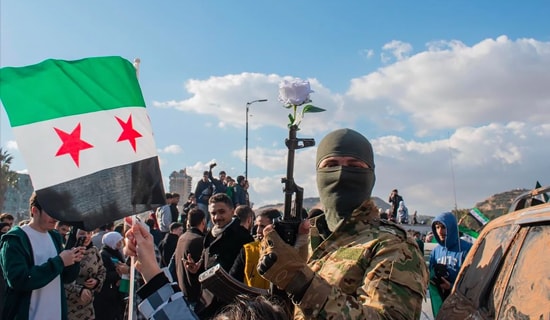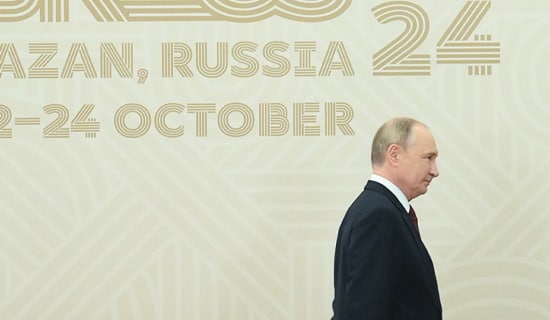In the May 18, 2022 Student Union elections at Birzeit University in Ramallah, Hamas scored an overwhelming victory, for the first time in years. The faction affiliated with it, Al-Wafa' Al-Islamiyya, took 28 seats out of 51, with 18 going to the Fatah Yasser Arafat faction. The Hamas win prompted rejoicing among Hamas senior members and supporters, who view it as evidence of the movement's increasing popularity among the Palestinian public.
Fatah members expressed disappointment and frustration, arguing that their movement pays the price for the mistakes made by the Palestinian Authority leadership; however, they consoled themselves with Fatah's win in the Palestinian Bar Association elections in the West Bank and the Gaza Strip several days previously.
Following the Birzeit Student Union elections and the reactions to their outcome, Palestinian political commentator Akram Attallah criticized how democracy and elections are perceived in the Palestinian political arena, stating that both Hamas and Fatah are hypocritical about them. In his article, published in the Palestinian Al-Ayyam daily, he asserted that both movements consider democracy and elections a means to power, without cultivating any democratic culture under their governance and while not allowing other elections to take place in their territory, citing as examples Hamas's prevention of municipal elections in Gaza and Fatah's cancellation of Legislative Council elections in the Palestinian Authority.

Hamas supporters at Bir Zeit University (Source: Alresalah.ps, May 22, 2022)
The following are translated excerpts from Akram Attallah's article:
"The dust of the Birzeit elections has settled, giving us a clearer view and allowing a calmer discussion far from the emotional views published immediately after the results became known. These views were, as usual, divided into two camps. One of them [i.e. Hamas, the victor], attempted to depict the outcome as best representing [the will of] the homeland, while the other [i.e. Fatah] tried to console itself and find excuses. This phenomenon recurs in every contest between Fatah and Hamas. Depending on the outcomes, analyses published [afterwards] usually seek to establish a discourse that fits the interests [of the particular camp] and the outcome of the elections, by either exaggerating [a victory] or downplaying [a defeat].
"There is no doubt that the Birzeit elections have for decades been considered the most important student union elections, due to the university's uniqueness. This was true even before the schism between the two big movements [Fatah and Hamas] began and before they began competing for [dominance in] the Palestinian public sphere. The reason for the uproar [over various elections] is that they all are held amid intense tension and division, and in the absence of national achievements. This turns any local victory into a kind of compensation for the lack of answers to the large questions, which the factions prefer to forget.
"Elections are a democratic act, and the aspiration of all Palestinians. But there is a moment of irony that obliges us to wonder about such a joyous [celebration of victory] amid a pile of rubble. This is true of both Fatah and Hamas, who welcome elections not as a social and political action but only as [an end to] an outcome, and celebrate [or not] according to the outcome.
"Last week, the Palestinian Bar Association elections were held, and Fatah celebrated its outcome [in which it triumphed] as if it reflected public opinion, while Hamas remained silent and attempted to find excuses and downplay Fatah's victory. Immediately after that came the Birzeit elections, and the situation was reversed: Hamas celebrated, seeing the results as a reflection [of public opinion], whereas Fatah busily sought excuses for its loss.
"Since people [choose to] study at universities that suit their political, organizational, and social inclinations, we naturally know [in advance] that Fatah will win the Palestinian Dentists Association elections, whereas the Engineers Association and the Bar Association elections will go to Hamas. There is no surprise here, and it reveals little about [general] public opinion…
"But there is another aspect amid the factions' joy or sorrow, their victory or defeat, and their celebration or silence. Because the minute they win... they forget that they are the reason that [other] elections are canceled and that people are prevented from holding them – revealing the devious nature of the factions' discourse. This further undermines the trust in them – not only because their discourse is at odds with reality, and their talk about ballots and democracy is at odds with their tyranny on the ground, [but because] they insult the intelligence of the public when they assume that [people] are stupid enough to tolerate this contradiction.
"Hamas, which is celebrating the [election] results in Bir Zeit, prevents any municipal elections from taking place in the [Gaza] Strip, instead convening a handful of its supporters and choosing one as mayor. But [the movement] disregards this in its moment of intoxication over its [Birzeit] victory. As for Fatah, which is celebrating its victory in the elections in the Bar [Association] and Bethlehem University – it cancelled the Legislative Council general election. And this seems to be the case with the [other] factions as well: There is a deep chasm between the [factions'] discourse and their actions, that exposes their approach to governing the state and the people.
"Another conspicuous fact is that each faction loses to some extent in the area it controls, and that [the people in] each area vote for the faction that is not in power. This reveals something greater than victory and loss, raising questions about administrative failures and about the failure of the models [of government] that have been tried. Fatah lost most of the municipal elections in the West Bank, with Hebron as the most striking example.
"On the other hand, what if there had been, for example, municipal elections in the Gaza Strip, or at Al-Quds Open University? Hamas, which is preventing these elections, knows [what would have happened]… What does it reveal about the relationship between the citizen and the authorities when citizens respond by voting this way? This is what the factions need to understand when they celebrate small details while fighting against general principles, or prevent the whole while allowing parts [i.e. when they allow some small-scale elections but reject the overall principles of democracy by not allowing general and municipal elections], according to their interests…
"When a party wins, it thanks the people and praises their awareness, [moral] compass, and insight. But when its rival is elected, it accuses the people, sometimes of ignorance and other times of corruption or of desiring corrupt [leaders]. Thus, [to the factions], the ballot and the [election] results show whether the people are aware or stupid. The decisions of the elements of political power are accepted in accordance with interests, without regard for contradiction in the discourse…
"Do these factions, which celebrate [a victory] here or there, [really] believe in transfer of power through [elections]? They almost certainly do not – because their cancellation [of elections] and [our] ongoing experience [with this] arouse great pessimism. The factions welcome the achievements of their particular political party – but not the [democratic] process of popular [elections], which they themselves prevent.
"The Palestinian crisis is rooted in the fact that the powers-that-be see elections as a means of attaining power, not as a means [used] in the framework of political action. If every so often there is [also] a cultural crisis that is no less grave than the political one, how can anyone be surprised by the continuation of this disastrous situation!!!"[1]
[1] Al-Ayyam (Palestinian Authority), May 22, 2022.





